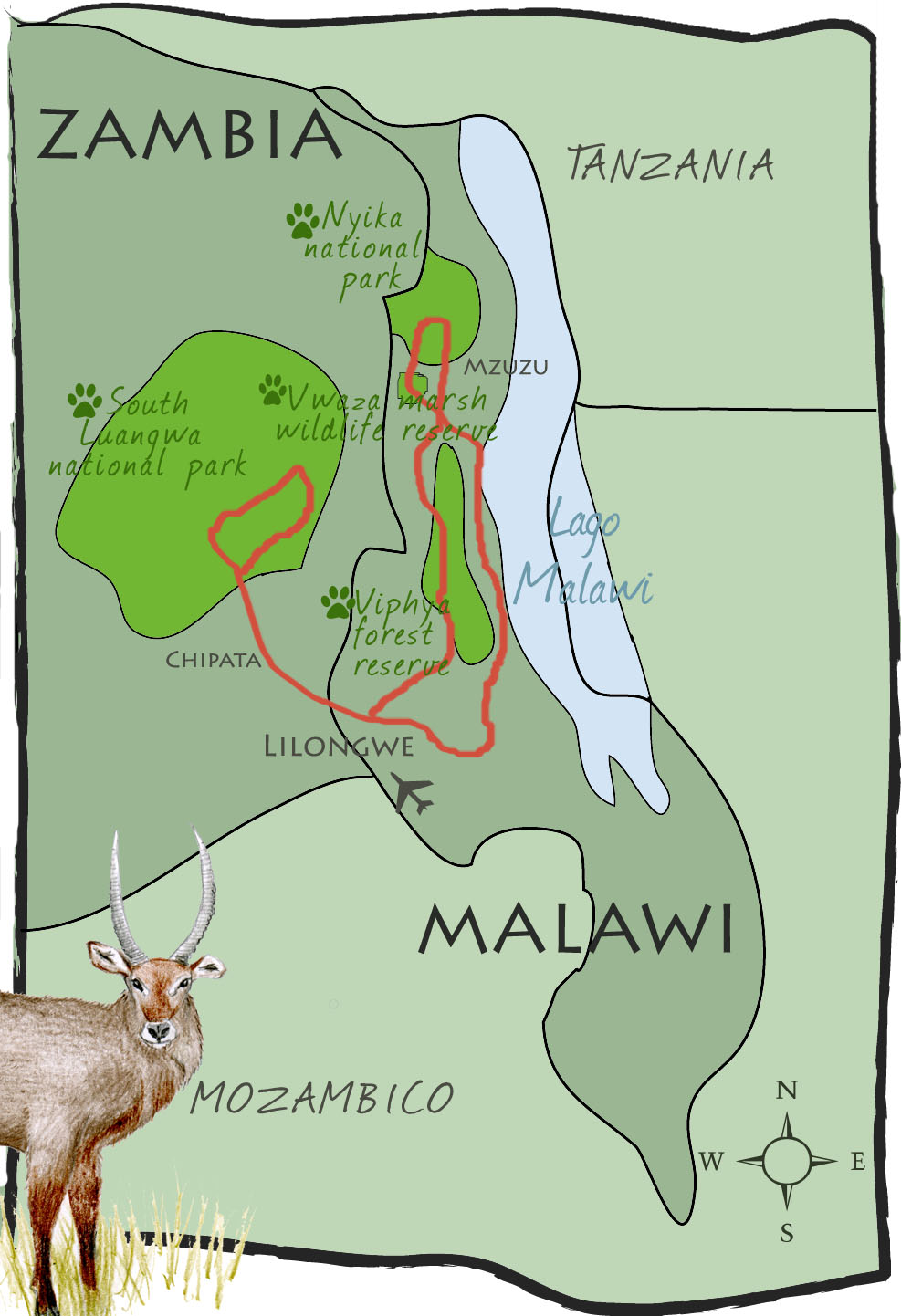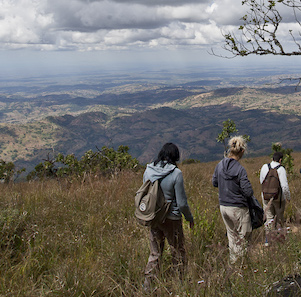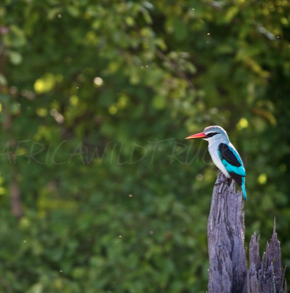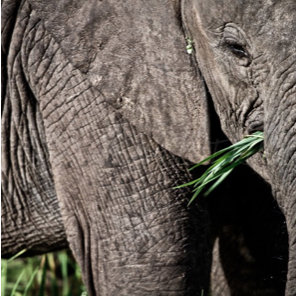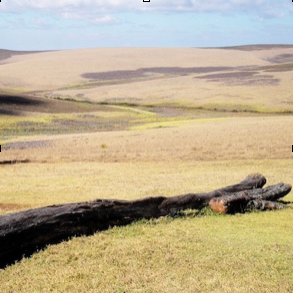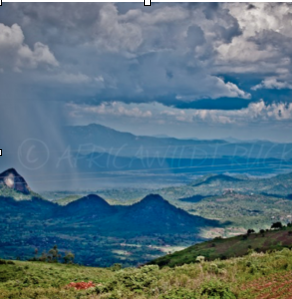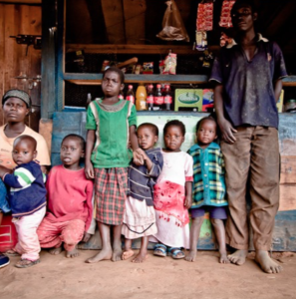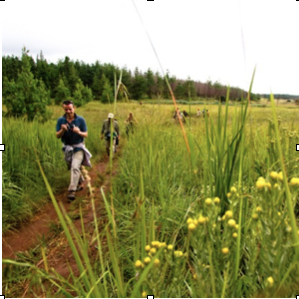Expedition 113 – Malawi Zambia wild North
Malawi Zambia Wild north. Malawi, northern wilderness. In the highlands of the Rift Valley: Nyika National Park, Viphya Forest Reserve and South Luangwa National Park, Zambia
WHAT WE WILL SEE
Malawi Zambia Wild north. A trip to the highlands of the Rift Valley, between Malawi and Zambia, in comfort. Few countries have unknown and forgotten regions. In Malawi it is the north. This region is dominated by Viphya highlands, where lies the Viphya Forest Reserve, the unique scenery of the Nyika National Park, a pearl set between 2000 and 2600 meters above sea level, a national park with one of the most spectacular scenery and unusual landscape in Central Africa. The Nyika Plateau forming the wall of the Great Rift Valley and the flood plains of Vwaza Marsh Wildlife Reserve, including buffalos, elephants and hippos, to 1000 m above sea level, an area of swamps and plains and the beautiful Lake Malawi. The lake is the third largest in Africa, with clear waters like those of a sea that is home to about 550 species of fish. In Zambia, the incredible South Luangwa National Park, to experience the thrill of being close to nature during the walking safaris and also entering the mid of the park even at night with the jeep. A park with an abundance of predators: lions, jackals, hyenas, cheetahs, small herds of wild dogs now endangered and, not least, relatively easy to spot, the leopard. The park is also home to two large rare endemic species: the Thornicroft giraffe and Cookson wildebeest. The meeting with the local people, especially in Malawi, will remain in the heart for their great simplicity in the joy of life: unspoilt and little tourist sites immersed in a natural wild, animals, villages, markets, a journey spanning two nations that are so unique and so unforgettable.
DURATION: 13 days. Possibilities to extend your trip to the beautiful beaches of Malawi Lake.
THE TRIP – Malawi Zambia wild north
The Nyika national park, a pearl set between 2000 and 2600 meters above sea level, with one of the most spectacular scenery and unusual landscape in Central Africa; between hills and gentle slopes that stretch as far as the eye, some evergreen forest is a remnant of the immense rainforest that once covered Central Africa. Meetings with zebras, eland, roan antelope, cervicapre, klipspringer, jackals and hyenas are common; though harder to spot because of their shy nature, there is also a health population of leopards. The Viphya Forest Reserve is a very green area, rich in Brachystegia at 1650m and is malaria free. Here we can both get in touch with the Malawian culture, sit down to enjoy the sunset or the singing of hundreds of birds that inhabit the area or participate in one of trekking adventures starting from Viphya … soon we will fall in love with this corner of Malawi. This paradise offers incredible sightings both for birds (nectarines such as the double collar sunbird, eagles, vultures, herons and egrets are easy to spot). For mammals (hyenas can often be heard, while baboons, vervet monkeys, bushbuck, duiker are easy to spot. Leopards inhabits the area, along with owls, porcupines and mongooses.
We will spend a couple of days on the banks of the third largest lake in Africa, Lake Malawi, defined as “the most beautiful lake in the world” by many in the tourism sector magazines, one of the largest water reserves in the world; it is estimated that the endemic fish that inhabit the waters, Cichlids, are around 1000 species, colorful and very easy to approach. Very far from the idea that one has of the lake as a real inland sea, 365 km long and 52km wide hence also called the “Calendar lake”.
The days in Zambia will instead be spent in close contact with nature: the South Luangwa National Park is the heart of a beautiful ecosystem that boasts antelopes, zebras, buffalos, elephants and an abundance of predators: lions, jackals, hyenas, cheetahs, small herds of wild dogs now endangered and, not least, relatively easy to spot, the leopard. The park also hosts two rare endemic subspecies: the Thornicroft giraffe and Cookson wildebeest
A true paradise from the ornithological point of view with more than 700 species of birds. The park is famous for leopards: this solitary feline, though, it is difficult to spot, but during the night safari we will have more possibilities. Lions and hyenas are easy to spot.
Malawi is indeed a warm and welcoming country: its people have a warm and hospitable heart that in no other country in Africa we have ever heard. Away from tourism, despite the poignant beauty of its landscape, its hospitable and incredibly friendly people, the kilometers of pristine beaches of golden sand, Malawi is a country not yet discovered by tourism and this makes it even more fascinating.
There will be stops in the villages, in the markets where we often stop to buy the excellent fruits! If you want you can extend the trip to the beautiful beaches of Lake Malawi.
STAFF
Staff is made by professional guides trained by Malawi Tourism sector. WHO WE ARE
MEANS OF TRANSPORT
All distances will be covered with one or more means Toyota or Land Rover or similar off-road 4 × 4. A further provision, in the case of nights camping: mattresses, refrigerator, food, field kitchen, 12/220 V. current to recharge the batteries, two-way VHF, GPS, notebook to download digital photos and movies, satellite phone (cost 5 euro / min), first aid kit and a good travel library, with our guides to travel with.
ACCOMMODATION
In Lilongwe we will spend the nights in a nice lodge with restaurant and swimming pool. The nights at the South Luangwa National Park on the banks of the Luangwa River, in an absolutely beautiful position on the pitch fixed tented; hippos, giraffes and groups of elephants visit the area. At Makuzi beach two nights in exciting lodge overlooking Lake Malawi. To Nyika National Park in a memorable lodge for its location overlooking the Nyika Plateau, one of the most beautiful lands of Africa. At night the zebras visit the camp, as well as many species of antelope. Lodge in Senga Bay on Lake Malawi, absolutely beautiful location overlooking the lake. At Mzuzu in the city’s historic hotel in the countryside. On Viphya plateau still lodge in the forest surrounded by green located among hundreds of species of birds. The rooms in the lodge / chalet / hotel, is intended, unless otherwise requested, in double or, in rare cases, triple; They could be replaced for technical-organizational problems without distorting the original plan The facilities have been carefully chosen following an idea of land conservation and sustainability of travel, preferring positions in close contact with nature. For a list of the lodge / camping , please write to us!
A SAFARI GUIDE
The numerous game drives (English definition that describes the excursion in 4 × 4 organized for the sighting of animals), will take place in the daytime and at night with the jeep. It is not required to have special preparation except the desire to get up at dawn and patience required in search of animals. Note that Safari will be held during the coolest hours of the day (sunrise and sunset), when animals are easier to spot. Being self-driven, however, we may decide to stop on a scene for as long as possible, always following the rules of the park. The safaris are conducted on open jeeps equipped for the safari.
Photographers during the safari will always be permitted to bring their own camera equipment. The guides will aim to position the vehicle in the best position, where security and safety permits. Inside the park the jeep will NOT communicate by radio with each other, to avoid the crowd on an animal and thus preserve the peace.
Then the vehicle must be in the right place at the right time to see what you want; we prefer that a sanctuary of nature such as the South Luangwa National Park preserve this spirit of adventure that so characterizes it.
Important information: in the parks or in the camps, will be made to sign a disclaimer of responsibility required to access given the nature of the place.


